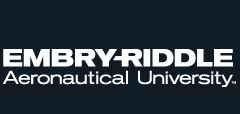Proposal / Submission Type
Peer Reviewed Paper
Location
Las Vegas, Nevada
Abstract
Recent prosecutions of highly publicized white-collar crimes combined with public outrage have resulted in heightened regulation and greater emphasis on systems of internal control. Because both white-collar and cybercrimes are usually perpetrated through computers, auditors’ knowledge of information technology (IT) is now more vital than ever. However, preserving digital evidence and investigative techniques, which can be essential to fraud examinations, are not skills frequently taught in accounting programs. Furthermore, many students are not instructed in the use of computer assisted auditing tools and techniques – applications that might uncover fraudulent activity. Only a limited number of university-level accounting classes provide instruction in IT investigative techniques.
Scholarly Commons Citation
Kearns, Grover S. and Mulig, Elizabeth V., "Paper Session III: Research Brief: A Curriculum for Teaching Information Technology Investigative Techniques for Auditors" (2006). Annual ADFSL Conference on Digital Forensics, Security and Law. 1.
https://commons.erau.edu/adfsl/2006/session-iii/1
Included in
Computer Engineering Commons, Computer Law Commons, Electrical and Computer Engineering Commons, Forensic Science and Technology Commons, Information Security Commons
Paper Session III: Research Brief: A Curriculum for Teaching Information Technology Investigative Techniques for Auditors
Las Vegas, Nevada
Recent prosecutions of highly publicized white-collar crimes combined with public outrage have resulted in heightened regulation and greater emphasis on systems of internal control. Because both white-collar and cybercrimes are usually perpetrated through computers, auditors’ knowledge of information technology (IT) is now more vital than ever. However, preserving digital evidence and investigative techniques, which can be essential to fraud examinations, are not skills frequently taught in accounting programs. Furthermore, many students are not instructed in the use of computer assisted auditing tools and techniques – applications that might uncover fraudulent activity. Only a limited number of university-level accounting classes provide instruction in IT investigative techniques.

